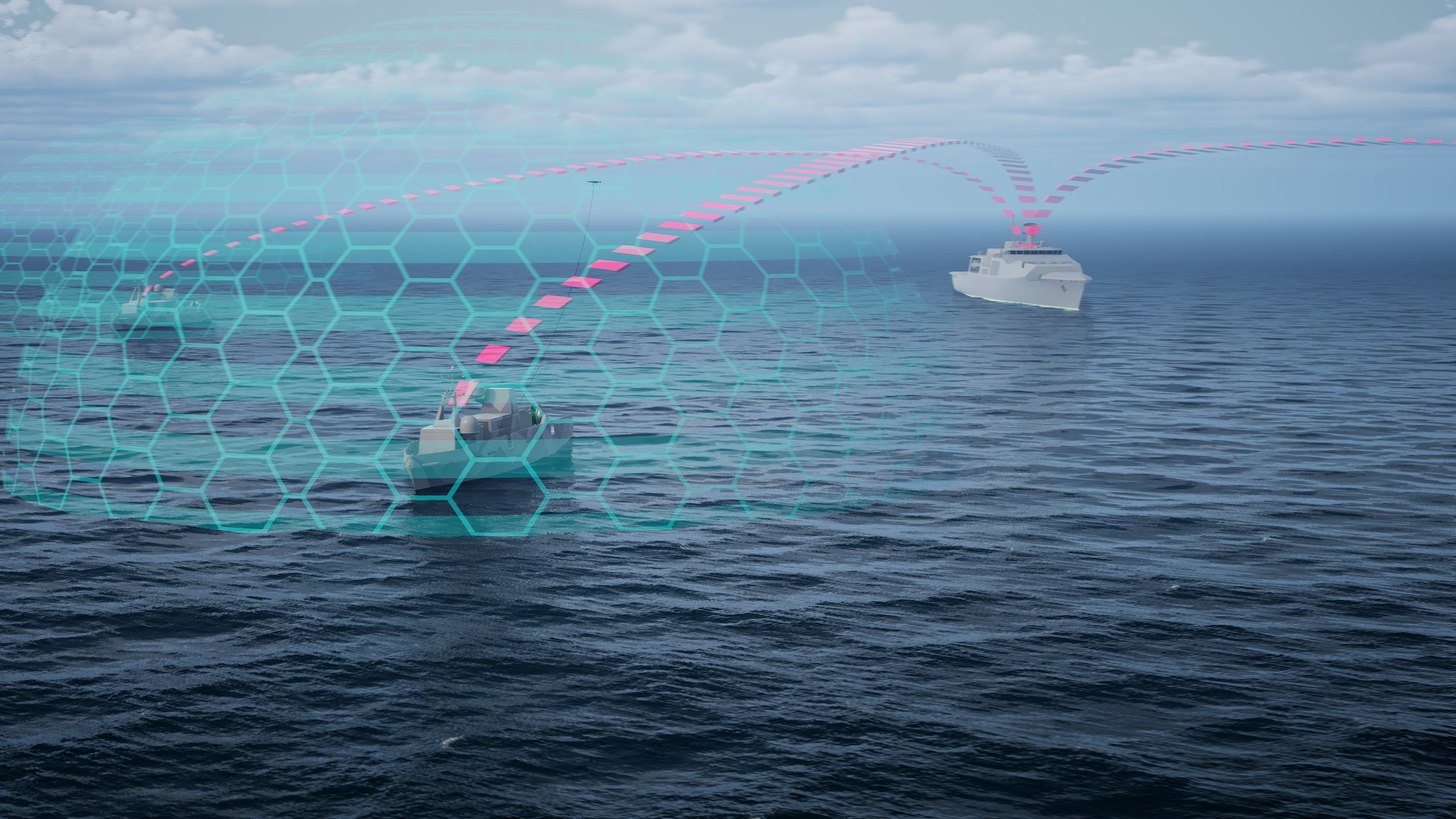
4 September 2025

BMT unveils its Modular Uncrewed Ship concept MODUS - highlighting its commitment to research and innovation in ship design and naval engineering. With a fundamentally modular approach at its core, BMT’s vision stands apart in the autonomy space by focusing on adaptable solutions for specific operational needs, not just a one-size-fits-all vessel.
The concept reflects the ambitions set forth in the United Kingdom’s Strategic Defence Review and broader industry trend towards larger more capable uncrewed vessels with greater use of autonomy. MODUS presents new opportunities for collaboration with industry and customers worldwide seeking cost-effective and more sustainable, high-technology maritime solutions that can be tailored for a range of user cases.
Challenging everything we know about traditional crewed vessel design; MODUS aims to unlock the benefits of autonomy and uncrewed vessels at scale. Working to a new design philosophy focussing on pace (speed of production), price (cost effective mass) and persistence (high availability) the project has developed pre-concept designs for a medium USV (40 metres) and a large USV (75 metres). These vessels are designed for specific use cases including offshore survey, seabed warfare and anti-submarine warfare. With a flexible modular architecture, MODUS is ready to meet the next generation of hybrid maritime operations where a mix of crewed and uncrewed vessels will work together in concert.
Responding to the growing demand for medium and large uncrewed surface vessels and signals from the Royal Navy and international markets, MODUS addresses a core challenge many naval operators are facing, delivering affordable mass into fleets at pace to meet evolving threats and growing demand.
The project is built on over 6 years of research, beginning with the Highly Autonomous Warship Technology (HAWT) programme, completed in 2021, which advanced the safe and secure integration of autonomous technologies, lean-crewing and digital automation into vessel design. Building on these foundations, the Large Uncrewed Surface Vessel (LUSV) initiative, showcased at DSEI in 2023, demonstrated how large uncrewed vessels can add scalable, interoperable mass to naval fleets - delivering flexibility, endurance and greater efficiency. Together, these programmes have culminated in the MODUS concept.
Will Alexander, Global Business Development Lead - Maritime Autonomous Systems at BMT, commented:
“Many navies are facing challenges including lack of mass, crew shortages, spiralling cost of building, operating and sustaining complex warships and keeping up with the pace of technology development. The need to adapt is clear and urgent. This requires a change of mindset. MODUS represents a new way of thinking and is a step towards a hybrid fleet where crewed and uncrewed platforms operate together to overcome these challenges.
Our intent with MODUS is to help shape thinking, provide a credible vision and invite collaboration,” adds Alexander. “From autonomy providers to system integrators, we are open to working with partners to accelerate this concept to its next stage of maturity.”
Jake Rigby, Global Head of Innovation & Research at BMT, commented:
“MODUS is not just one design; it is a family of designs with an intrinsic design philosophy to minimise vessel cost and add affordable mass to existing naval fleets: working alongside crewed assets as a mixed fleet solution. Crucially, our approach allows us to adapt each MODUS variant for specific user cases - enabling true scalability and customisation in response to operational needs, which distinguishes BMT from traditional design thinking in this space. We started with a fresh slate, working from the ground up first focusing on three core use cases of Military Data Gathering, Seabed Warfare and Anti-Submarine Warfare. We focused on simplicity of design, which ironically is often harder than a traditional design, as every decision is value engineered and scrutinised.
In addition, by moving to an uncrewed design, we had the daunting but brilliant opportunity to throw out the rulebook of conventional design, answering questions of how we can build in survivability and questioning standard deck heights/ subdivision if there is no-one on board to use it.”

MODUS isn’t just modular in form; its very philosophy is about enabling flexible, scalable solutions that respond to real-world needs - helping navies and operators evolve at speed as requirements change. By fusing design ingenuity with operational practicality, BMT is offering its multidisciplinary expertise and innovative approach to ship design - as well as proven insights from established projects - to ensure MODUS serves as both a testbed and blueprint for future exploitation of autonomous and uncrewed systems.
MODUS also exemplifies BMT’s commitment to national prosperity and skills, designed from the outset to draw upon UK shipbuilding capability and supply chain strengths. This approach supports ambitions set by government for “whole-of-nation” collaboration on security, economic growth and technological advancement. While currently a research and development concept, MODUS possesses scalability and adaptability for a range of future missions, from naval operations to offshore hydrographic survey, asset inspection, environmental monitoring and maritime logistics. Its development positions BMT to offer credible, carefully engineered design options in a sector seeing fast evolution and growing global demand.
A fuller technical paper, authored by BMT’s Maritime Autonomous Systems experts, will be released following DSEI. This will provide deeper insight into MODUS’s modular architecture, operational concepts and the design innovations shaping the future of uncrewed naval capability.

4 December 2025
The Fleet Solid Support programme (FSS) steel cutting ceremony has officially taken place, kicking off contrustion of the first FSS Ship for the Royal Fleet Auxiliary with Commodore Sam Shattock, Head of the Royal Fleet Auxiliary Service, revealing the name of the first ship.

13 November 2025
The Fleet Solid Support (FSS) programme has achieved a pivotal milestone with the successful completion of the Critical Design Review (CDR).

11 November 2025
At a ceremony at the Grosvenor House Hotel in London last night, we attended the MCA Awards 2025 to recognise and celebrate our management consultant expert being shortlisted in the Team Leader of the Year category.

7 November 2025
BMT, in collaboration with Hydrosurv and South Devon College, is proud to unveil the latest milestone in maritime autonomy: the ROC + DOCK project.